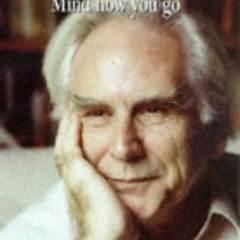Mirth Quotes
Half the trouble in life is caused by pretending there isn't any.
Edith Wharton (2013). “House of Mirth and the Age of Innocence”, p.210, Simon and Schuster
Heinrich Bullinger, Harding (1850). “The Decades of H. Bullinger ..”, p.55
Man is distinguished from all other creatures by the faculty of laughter.
'The Spectator' no. 494, 26 September 1712
She had no tolerance for scenes which were not of her own making.
Edith Wharton (2015). “The House of Mirth”, p.32, Xist Publishing
Richard Baxter, William Orme (1830). “The Practical Works of the Rev. Richard Baxter, with a Life of the Author, and a Critical Examination of His Writings”, p.24
'The Compleat Angler' (1653) pt. 1, ch. 2
Quick-circulating slanders mirth afford; and reputation bleeds in every word.
Charles Churchill, George Gilfillan (1855). “The poetical works of Charles Churchill: with memoir, critical dissertation, and explanatory notes / by the Rev. George Gilfillan”, p.38
There is nothing like fun, is there? I haven't any myself, but I do like it in others.
Thomas Chandler Haliburton (1855). “Nature and Human Nature”, p.56, New York : Stringer and Townsend
Joseph Addison (1839). “Essays, Moral and Humorous: Also Essays on Imagination and Taste”, p.103
Henry David Thoreau, Odell Shepard (1961). “The Heart of Thoreau's Journals”, p.15, Courier Corporation
'Hamlet' (1601) act 1, sc. 2, l. 1
I have of late--but wherefore I know not--lost all my mirth, forgone all custom of exercise.
William Shakespeare, Alan Durband (1987). “Hamlet”, p.116, Nelson Thornes
William Shakespeare (2012). “Shakespeare's A Midsummer Night's Dream”, p.161, Courier Corporation
Present mirth hath present laughter. What's to come is still unsure.
'Twelfth Night' (1601) act 2, sc. 3, l. [42]
'Love's Labour's Lost' (1595) act 1, sc. 1, l. 105
Meat eaten without either mirth or music is ill of digestion.
Walter Scott (1875). “Waverley Novels: The monastery”, p.251
Richard Baxter, William Orme (1830). “The Practical Works of the Rev. Richard Baxter: With a Life of the Author, and a Critical Examination of His Writings”, p.376
Oliver Goldsmith (1856). “The Works of Oliver Goldsmith: Comprising His Poems, Comedies, Essays, and Vicar of Wakefield”, p.27
Henry Ward Beecher, William Drysdale (1887). “Proverbs from Plymouth Pulpit”
Henry Fielding, Thomas Roscoe (1851). “The Works of Henry Fielding: Complete in One Volume”, p.643







